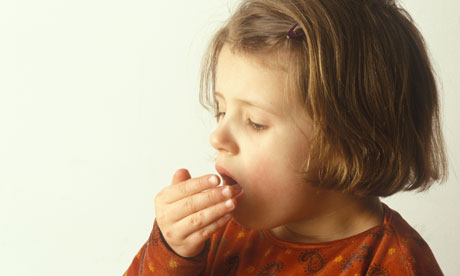
Whooping cough is on the rise. There were 665 reported cases from January to March, compared with 1,040 for the whole of 2011. It is a nasty disease, caused by a bacterium called Bordetella pertussis, that starts with an irritating cough and becomes prolonged, uncontrollable and makes you choke or vomit. The whoop on breathing in, once heard, is unlikely to be forgotten. It is spread by airborne droplets and takes six to 20 days to take hold, but can last up to three months. The recent increase seems to be mainly in young adults, who are unlikely to get seriously ill. However babies are now being affected too: so far, three babies have died from the disease this year.
The highest rates of the disease occur in babies under three months who have not yet been fully immunised. They are most at risk of complications such as pneumonia (their tiny airways get blocked by mucus) and brain damage, from not being able to breathe due to coughing.
Causes for the rise could be due to people not finishing their vaccination regime (whooping cough is given combined with other vaccinations at two, three and four months, followed by a pre-school booster between three and five). But it could also be because immunity from the vaccine wears off more quickly than doctors thought. A study from California of 15,000 children found that it seemed to wane after as little as three years.
However, previous studies suggest immunity varies between people and could last between five and 10 years after whooping cough vaccines. Testing for the disease has also got better and some of the increase may be due to better diagnosis.
So if you're worried that you might contract whooping cough and infect any babies you know, what should you do?
The solution
Vaccination programmes are to protect the young and those with compromised immunity. The whooping cough vaccine is safer than catching the disease, especially in its acellular form, which contains inactivated pertussis toxin. Three per million people will have a life-threatening allergic reaction. Other side-effects include pain and swelling at the injection site, and fever; seizures can happen, but are rare.
Make sure your children are up to date with their vaccinations. The Department of Health is considering introducing another booster at age 11, but right now this isn't routine.
If you think you have been in contact with someone with the illness, or start to show symptoms, see your GP, who may suggest you have a top-up immunisation. There is not much evidence that the antibiotics usually given have much impact on the disease, but they will stop you being infectious faster. Studies show most babies are infected by family members, so stay away from others where possible until no longer infectious – three weeks after the start of symptoms.

